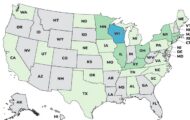Senators Dianne Feinstein (D-CA), Kirsten Gillibrand (D-NY), and Elizabeth Warren (D-MA) are asking the President to increase funding for the National Antimicrobial Resistance Monitoring System (NARMS) in a letter sent to the White House on Monday, September 22, 2014. The senators are asking for $15 million in the fiscal year 2016 budget.
 The senators say that “combatting the mounting threat of antibiotic resistance in foodborne pathogens is one of our top priorities, and NARMS is key in this effort.” Last week the White House released a report on combating antibiotic resistance, along with a National Strategy on Combating Antibiotic Resistant Bacteria and a Presidential Executive Order which emphasizes the importance of this work.
The senators say that “combatting the mounting threat of antibiotic resistance in foodborne pathogens is one of our top priorities, and NARMS is key in this effort.” Last week the White House released a report on combating antibiotic resistance, along with a National Strategy on Combating Antibiotic Resistant Bacteria and a Presidential Executive Order which emphasizes the importance of this work.
The CDC estimates that 2,000,000 people develop antibiotic-resistant infections every year in this country. That results in 23,000 deaths and a $20 billion cost to our health scare system. WHO states that antibiotic resistance “is now a major threat to human health.”
NARMS collects bacteria from animals, meat, and poultry products and people who are sick and analyzes them for trends in antibiotic resistance. This program has been “historically underfunded”, which means it can only sample meat sold at the retail level in 14 states. Doubling the funding from FY 2014 will let the FDA increase the number of samples, and implement molecular detection to improve the analysis of these pathogens.
NARMS is also used to detect and investigate food poisoning outbreaks caused by antibiotic resistant bacteria, such as the huge Foster Farms chicken Salmonella Heidelberg outbreak in 2013. That outbreak was caused by seven multi drug resistant Salmonella bacteria. NARMS sampling helped the government link the outbreak to Foster Farms’ products.
Feinstein said of the President’s plan for combating antibiotic resistance that the White House “can’t address this challenge alone. Congress must provide adequate resources to implement these recommendations, and further action may be needed to ensure federal agencies have the authority to ensure antibiotic are used appropriately in all settings.”




